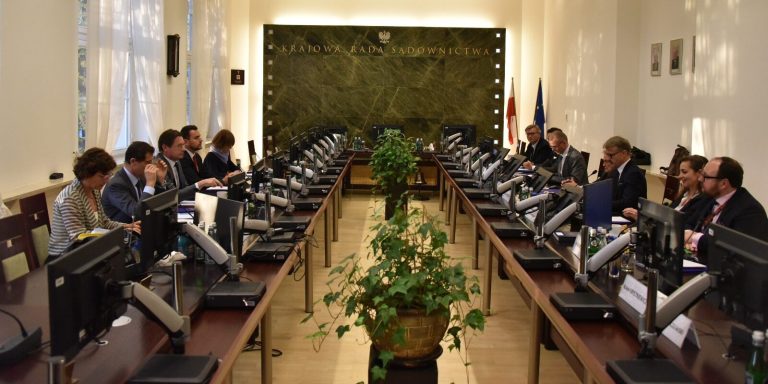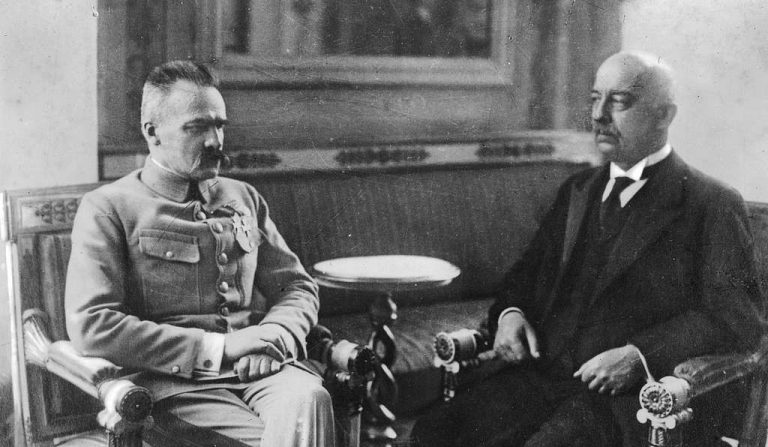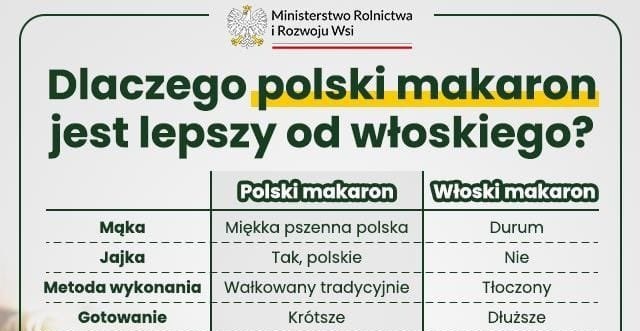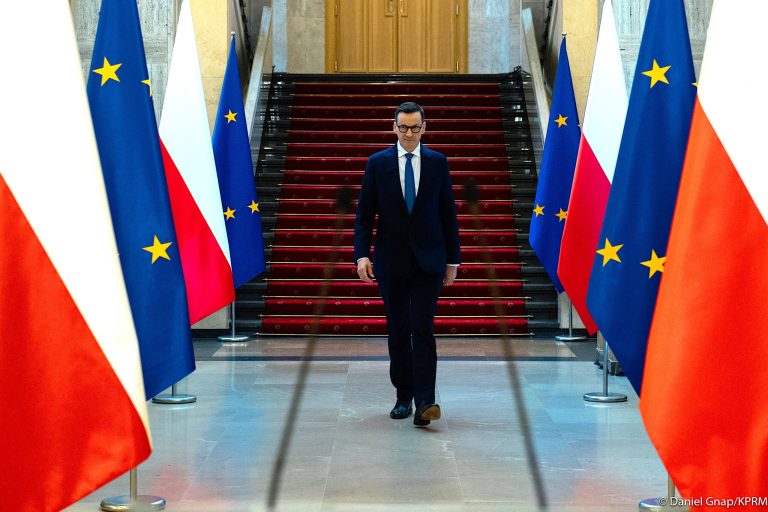Outgoing Polish government changes public media statute on last day in office
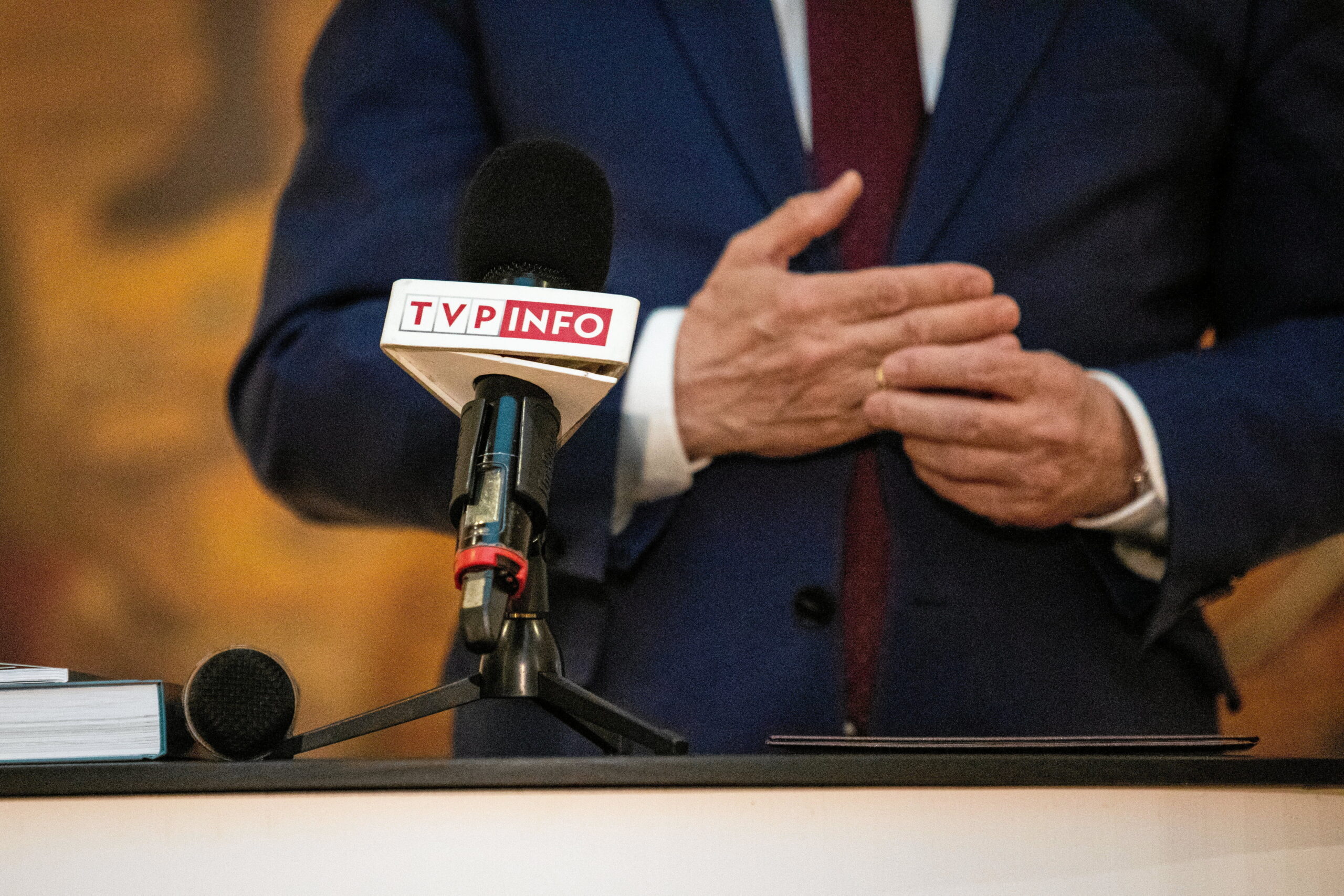
On the last day in office of the outgoing Law and Justice (PiS) government, changes have been made to the statutes of public media outlets TVP, Polskie Radio and the Polish Press Agency (PAP) at the request of culture minister Piotr Gliński.
Opposition figures and commentators have widely interpreted the move as an attempt to make it more difficult for the next administration to reform public media, which PiS has turned into a party mouthpiece. But Gliński insists that his actions are legal and justified to protect “pluralism”.
🗞️https://t.co/JcxZs15w8L
Minister kultury i dziedzictwa narodowego @PiotrGlinski zawnioskował o dokonanie zmian w statutach TVP, Polskiego Radia i Polskiej Agencji Prasowej – wynika z pisma, do którego dotarła @wirtualnapolska. To metoda na zablokowanie zmian w mediach… pic.twitter.com/j5njOX3CPn
— Wirtualna Polska (@wirtualnapolska) November 27, 2023
His plans were outlined in a letter – a copy of which has been obtained and published by news websites Wirtualna Polska and Onet – sent from Gliński to the National Media Council (RMN), a body that oversees public media, on Thursday last week.
He asks the council to approve changes whereby, if TVP, Polskie Radio or PAP are put into liquidation, the liquidators appointed to oversee the process must be members of the firm’s management board as well as the head of the company’s legal department.
The RMN was itself created by the PiS government in 2016 and three of its five members are PiS politicians. Wirtualna Polska reports that this morning the council approved Gliński’s request by a majority vote of three to two. The RMN later confirmed to PAP that it had approved the changes.
That approval came ahead of this evening’s swearing-in of a new provisional government led by the current PiS prime minister, Mateusz Morawiecki. However, because PiS does not have a parliamentary majority, that government is almost certain to lose a vote of confidence in parliament.
Three opposition groups have rejected invitations from the PM for talks on forming a new government with the ruling PiS party.
The development increases the likelihood that the PM’s efforts will fail and an opposition coalition will instead take power https://t.co/2oNsBEYdxY
— Notes from Poland 🇵🇱 (@notesfrompoland) November 22, 2023
It will then mostly likely be replaced by mid-December by a coalition of three opposition groups, Civic Coalition (KO), Third Way (Trzecia Droga) and The Left (Lewica), with Donald Tusk as prime minister.
That trio have pledged that one of their first tasks will be to “depoliticise public media”. Some reports have suggested they plan to do this by putting those media into liquidation and then reforming them. Gliński’s plan appears designed to hinder this.
One of the opposition members of the RMN, Robert Kwiatkowski, told Wirtualna Polska that “this is an attempt to circumvent the law and an attempt to deprive the future owner of its rights”.
The opposition groups likely to form the next government have signed a coalition agreement
They pledged to:
– restore rule of law
– annul the near-total abortion ban
– depoliticise public media
– prosecute anti-LGBT hate speech
– separate church and state https://t.co/lwQvGGok8s
— Notes from Poland 🇵🇱 (@notesfrompoland) November 10, 2023
Gliński, however, responded by tweeting that such claims are only being spread by “Tusk’s media system”. He insisted that “all activities related to public media are legal” and “pluralism is better for Poland and democracy than monopoly”.
PiS has argued that, because most major media outlets are supportive of the opposition, the influence it has exerted over public media during its eight years in power has been part of a necessary rebalancing of the media landscape.
But a variety of domestic and international expert bodies regard it instead as part of an effort to clamp down on media freedom. During PiS’s time in power, Poland has fallen from its highest ever position in the World Press Freedom Index to its lowest.
A prominent figure from state TV admits they produced „worse propaganda” than under communism to support the ruling party’s election campaign.
But he thinks this „Stalinist logic” backfired and contributed to the negative outcome of the election for PiS https://t.co/8CsLIeVgNz
— Notes from Poland 🇵🇱 (@notesfrompoland) October 18, 2023
In their preliminary report on last month’s parliamentary elections, international observers from the Organisation for Security and Co-operation in Europe (OSCE) noted that during the campaign TVP “deliberately distort[ed] events through the promotion of the ruling party…while heavily attacking its main political rival”.
The OSCE found that 80% of TVP’s coverage of the main opposition group was negative in tone while coverage of PiS and the government “was almost entirely positive and often framed to amplify the party’s campaign messages”.
OSCE observers issued similar findings regarding the bias of TVP in their reports on the 2019 parliamentary elections and 2020 presidential elections.
Long-running polling by state research agency CBOS shows that, under PiS, negative views of TVP among the public have reached their highest ever level. An annual study by researchers at the University of Oxford shows that the station is now the least trusted source of news among Poland’s main media outlets.
State broadcaster TVP remains Poland’s least trusted major news source, finds an annual study by @risj_oxford, which notes that the station provides „skewed, pro-government coverage”.
The most trusted outlets are RMF FM, Polsat, Radio Zet and TVN https://t.co/nhxEaj9lS0
— Notes from Poland 🇵🇱 (@notesfrompoland) June 15, 2023
Notes from Poland is run by a small editorial team and published by an independent, non-profit foundation that is funded through donations from our readers. We cannot do what we do without your support.
Main image credit: Jakub Orzechowski / Agencja Wyborcza.pl

Daniel Tilles is editor-in-chief of Notes from Poland. He has written on Polish affairs for a wide range of publications, including Foreign Policy, POLITICO Europe, EUobserver and Dziennik Gazeta Prawna.

